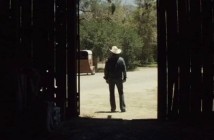
Editor’s Notes: The Grand Budapest Hotel is now out in wide release.
The undisputable king of quirk, director Wes Anderson is quite the icon and for many, an auteur of the filmmaking world. The status he has achieved over the period of just ten years at the helm of only eight feature films is remarkable. If you’ve ever seen a Wes Anderson film, you’ll know exactly when you’re watching a Wes Anderson film. If you’re new to his oeuvre, be prepared to witness something unlike anything you’ve seen in a screwball comedy before. His work is unmistakably distinctive and as much as it is obvious in style it leaves me tongue tied for an adequate or definitive description.
Anderson is something of a master of dry wit and strange charisma. Original to the end, Wes Anderson is a director that is so precise he still religiously storyboards every scene in his films.
Anderson is something of a master of dry wit and strange charisma. Original to the end, Wes Anderson is a director that is so precise he still religiously storyboards every scene in his films. He’s terribly unique in this sense of planning and it’s always evident from the production values and final result of his features. The turn around and quality of his pre-production ethics mean that the actors he loves working with come back time after time to be a part of his projects. He works with a very amicable troupe of actors that have a flare for the charismatic and keep doing what they do best for his characters. Giants of the business like Bill Murray and Tilda Swindon are among his regular ensemble. Taking gambles on unknown younger actors for his child and young adult roles, he seems to have a talent for seeking out those who possess a very natural ability to charm.
Starting in filmography order his peculiar work style began as director and writer of Bottle Rocket (1996). The narrative follows three friends who plan for and work towards what seems like a simple robbery, with the fleeting impression that they can live life on the run in a wonderful cacophony of mischief and fulfilment. It’s a much dreamed of idea, going on the run, and when the mundane everyday gets too much you need something to hope for. A fantastic exploration of friendship, questioning what stands testament to the doubts that linger when plans are just formulating into completion. The beginnings of the directors long standing working relationship with Owen Wilson were obviously cemented while working on this feature. The same comedy style that started and was condensed here marks the fluid continuity of Anderson’s comedy for the rest of his career to date.

By far his most famous feature and perhaps the most quotable, the cult workings of Rushmore (1998) were pretty early on in his career considering the films following. Set in an American prep school of the same name, one student stands out as the most ridiculously aspiration attendee. Ticking all the boxes when it comes to academia and extra-curricular involvement, what on earth is the king of school Max Fischer to do when he’s placed on probation? Hair-brained plans and general camaraderie capers abound. It’s one of the most iconic school themed films, right up there next to The Breakfast Club (1985) and 10 Things I Hate About You (1999) in my eyes.
Taking the social balance of the school environment in Rushmore Anderson’s next directorial feature The Royal Tenenbaums (2001) presents audiences with what can only be described as the most unpredictable family collection out there. Every family has a black sheep, its matriarchs, leading figures and atypical clowns, but there’s something distinctly stranger amongst this group of relatives. The most love it or hate it of Anderson’s features, either you’ll adore the characters or you’ll despise them.
The Life Aquatic with Steve Zissou (2004) is definitely my favourite Anderson feature. It’s got all his key themes and traits but also involves the exploits of an undersea submarine adventure in zoology. There’s very little about lead man Bill Murray that isn’t instantaneous and strange, he’s a cosmopolitan sort with a flare for dramatics and a passion for adventure. A cast worthy of praise and enough to make any director gloat, The Life Aquatic is packed with charisma and charm, characters that will entertain and divide viewers. Life below the waves in a submarine has never been portrayed as such that you will see here, striping away all the history of submarines in film. Parody meets iconography in this complex narrative with a full bodied flavour that’s refreshing and morish.
Wes Anderson’s films have their own unique identity and place in the film industry, somewhere between mainstream Hollywood values there’s a heavy beating indie heart.
By this point in his career Anderson has already got his follow him anywhere fans and an equal share of disillusioned audiences. The Darjeeling Limited (2007) is the film that is probably the easiest to break down those fan barriers and offer a narrative that’s not too hard to follow and combine it with all that is fabulously odd within Anderson’s features. Owen Wilson, Adrien Brody and Jason Schwartzman are three estranged brothers who travel through India by train after their father’s death. Quarrelling and strained relationships take their toll and stand testament to the joys of family.
As a director that largely works in live action, he took a detour in 2009 to make an adaption of Roald Dahl’s the childhood classic tale Fantastic Mr Fox. The fantastical world of the woodland creatures is presented in a retro lavished stop motion animation. The camerawork of long shots, close-ups and intensely lit scenery have edged their way into the format of Fantastic Mr Fox to make it incredibly unusual in visual style. It combines all the visual traits of his live action work, with bold colours abound and carefully crafted set pieces encapsulating the possibility of the medium.
Next up is by far my favourite of the director’s works, Moonrise Kingdom (2012). A simply magical narrative that immerses us in the oddly melodic love story of a boy scout and a socially literate but introvert girl. In some of the best portrayals of young love on screen, the honesty of the two young actors comes across beautifully in scenes that instantly take you into childhood wide eyed wonder and release the terrifying to adults spirit of runaways freedom. Both from very different environments, they risk all they know to follow each other as far as the other will go. Limits are pushed as the adults around the two young lovers try to come to grips with their relationship and fleeting nature. The cast bill features Bill Murray, Tilda Swinton, Edward Norton, Bruce Willis, Frances McDormand, and Jason Schwartzman to name a few.
Continuing the huge name involvement streak, his latest revelry in The Grand Budapest Hotel (2014) seeks all the power of quirky performances and bulks out the directors best assets. Some anti-Anderson film fans have expressed likely concerns of the same thing again and again, masked in a slightly different colour palette. Albeit this seems pretty fair, but if you like the ease of being familiar with a directors style and know roughly the sort of performance you’re going to get out the those actors, then it’s hard to say that the crowds flooding into the screens have got it wrong. Wes Anderson’s films have their own unique identity and place in the film industry, somewhere between mainstream Hollywood values there’s a heavy beating indie heart. Never forgetting that Anderson always acts with the utmost creative control as writer and director of his features, he takes pride of place with the auteur system alongside the likes of Hitchcock surely. The same ingenuity as always is loud and clear throughout and as an ending note, it looks like there’s a hopeful more to come in the same vein.



